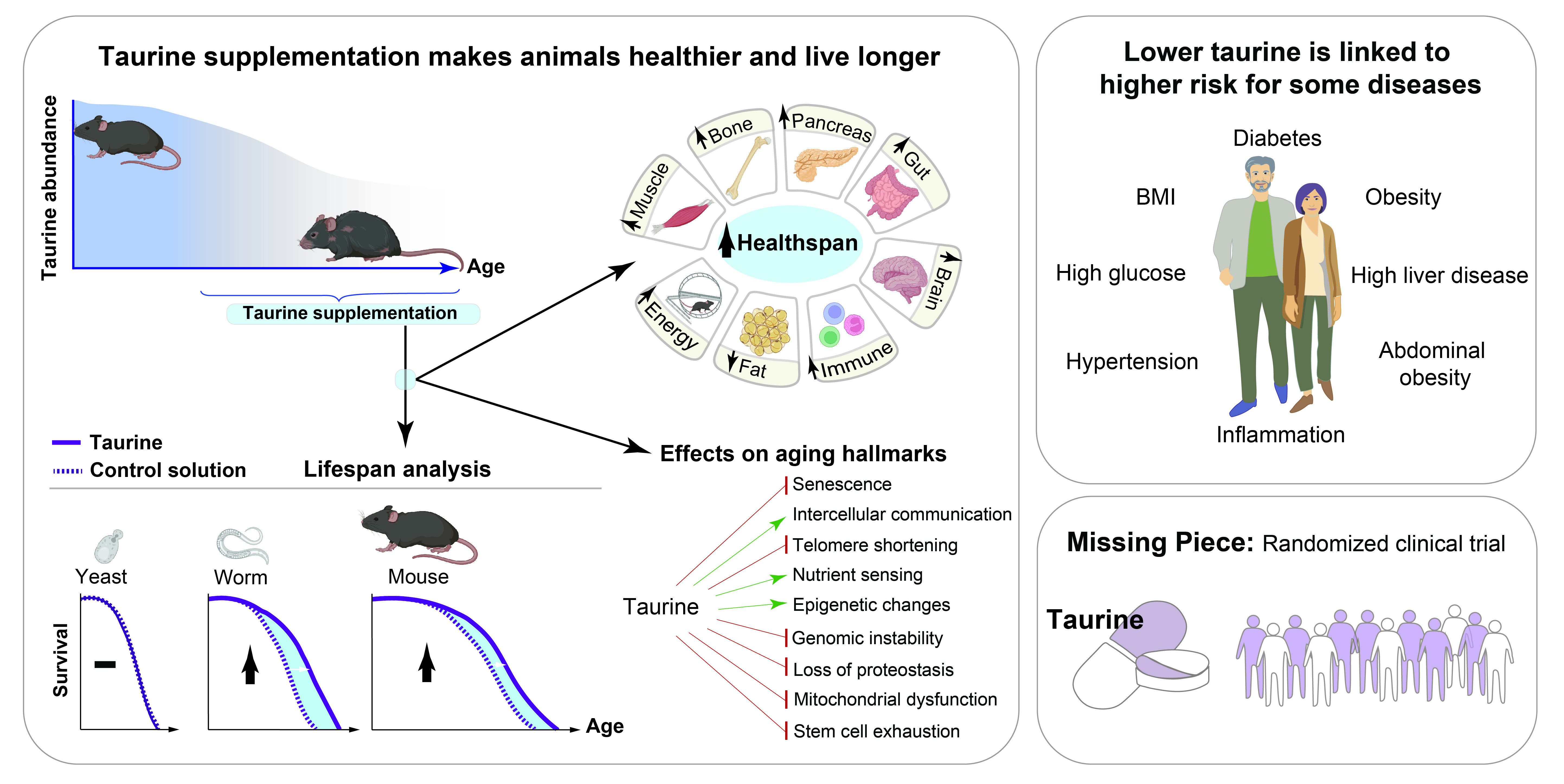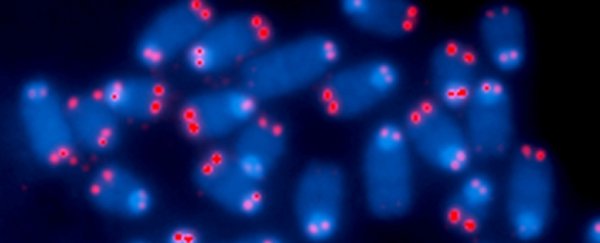Scientists have discovered not only that animals age more quickly when they don't have enough of the amino acid taurine in the body, but that oral taurine supplements can delay aging and increase a healthy lifespan.
An international team of researchers found that taurine supplements delayed aging in worms, mice, and monkeys, and increased the healthy lifespan of middle-aged mice by up to 12 percent.
"For the last 25 years, scientists have been trying to find factors that not only let us live longer, but also increase health span, the time we remain healthy in our old age," says biologist Vijay Yadav from Columbia University, senior author on the study.
"This study suggests that taurine could be an elixir of life within us that helps us live longer and healthier lives."
Taurine is found naturally in meat, fish, and dairy products, but not often in plants. Humans can synthesize taurine, though nutritional sources are often necessary during early life since newborns' bodies are not skilled at producing it.
Research on taurine has shown benefits in diabetes and antioxidant action, but its role in many cases is unclear.
"We realized that if taurine is regulating all these processes that decline with age, maybe taurine levels in the bloodstream affect overall health and lifespan," Yadav says.
"We started to ask if taurine deficiency is a driver of the aging process, and we set up a large experiment with mice."
Not just mice. Yadav and colleagues analyzed taurine concentrations in the blood at varying ages in monkeys and humans too – for the latter, using data from another study.
Taurine levels were found to decrease with age in a variety of species, including humans, by an estimated 80 percent over the course of a typical human life.
But when oral taurine supplements was given to middle-aged worms and mice, their median lifespans increased by 10-23 percent and 10-12 percent, respectively.
In mice, taurine supplementation improved strength, coordination, memory, and aging markers. Mice who were missing the main transporter that takes the amino acid into the cells lived shorter lives as adults.
When taurine was given to middle-aged rhesus macaques (Macaca mulatta) for six months, there were noticeable improvements in their bone density, blood sugar levels, and markers of liver and immune function.
"Not only did we find that the animals lived longer, we also found that they're living healthier lives," explains Yadav.
The analysis also showed that people with obesity and diabetes had lower levels of taurine in their blood, while people who exercised had higher levels.

"This is interesting to us because this might explain part of the health benefits of exercise and of the anti-aging effects," says molecular exercise physiologist Henning Wackerhage of the Technical University of Munich.
"Taurine appeared to affect all the established hallmarks of aging," the researchers write in their published paper.
Physiologists Joseph McGaunn and Joseph Baur from the University of Pennsylvania, who were not involved in the study, write in a perspective article that "notably, causality remains to be tested".
The perspective adds that taurine is widely supplemented in baby formula and energy drinks without significant suggested risks, but it is important to consider potential risks and interactions with other factors.
"A singular focus on increasing dietary taurine risks driving poor nutritional choices, because plant-rich diets are associated with human health and longevity," write McGaunn and Baur.
"Thus, like any intervention, taurine supplementation with the aim of improving human health and longevity should be approached with caution."
Large, long-term human randomized control trials are needed, and although no toxic effects are known to be associated with taurine, the doses used in the study have rarely been used in humans.
Incredible advancements in medical science mean our population is living longer, and increasing quality of life is important too. Scientists have previously found clues to aging 'gracefully' in telomeres and poop transplants, and now taurine looks promising.
"Although it is difficult to say at the present time whether taurine supplementation is going to be an anti-aging therapy based on our studies in several species and our intervention in monkeys, it is reasonable to test it at least," Yadav says.
The research has been published in Science.
